What a gorgeous way to start a rainy Sunday, a pot of proper coffee, the papers and Bassekou Kouyate & Ngoni Ba Segu Blue. This album is a real treat, gentle and soothing with enough rhythm, particularly later on, to nudge you into the pace of the day proper.
Like most of my favourite African music this is from Mali, you can’t mistake that constant flowing, liquid sound. Bassekou Kouyate is the absolute master of the ngoni, a small lute-like instrument made from hollowed-out wood covered in hide with a fretless neck often thought to be a precursor to the banjo and guitar. Bassekou’s grandfather was a great, acclaimed griot* who was so popular he could bring the country to a virtual standstill when he appeared on national radio <Btw. there’s a lot of very good stuff on that website, I thoroughly recommend it>. Ngoni Ba add a bass ngoni to their sound, giving it all a deeper sound which is simultaneously new and as old as the Bamana Empire of Segu**, the amplification is of course, a new touch. This music is alive and evolving, no matter how based in tradition it may be, that’s the point.
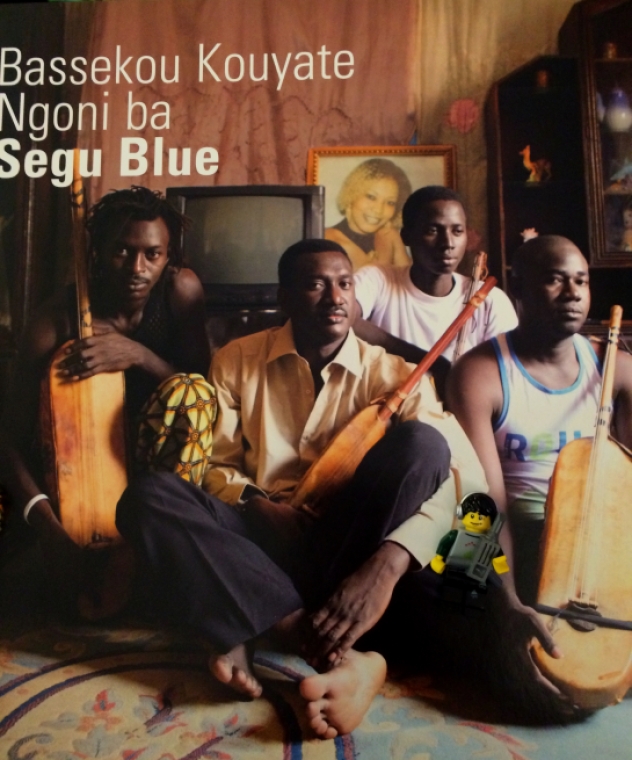
Segu Blue makes me smile. There’s a real feeling of joy, non-specific universal spirituality, continuity and love to be found right here in these grooves. There is an essential niceness and a gentility of spirit present throughout, Bassekou and his band are nice people, you can feel it – my mother says you can sense it when you see them interact live. That this album hails from 2006, gives Segu Blue a certain prelapsarian quality and does add a piquancy to its reverential treatment of musical and historical traditions, all now in serious danger from the raw evil that threatens to overrun the whole region.
There is an emotional charge to ‘Bala’ which features guest vocalist Zoumana Tereta and tells of the story of the mighty Segu warrior Bala, a fearsome man who delivered himself into the hands of his enemies just in order to prove his own courage. There is a palpable pride and regret in the hoarse vocals, notable here as all the other vocal guests are female – this is a man’s tale, sung by a man; eat your hearts out Manowar! Then contrast this with the traditional ‘The River Tune’ which just flows inexorably and prettily throughout its’ length.
Fellow amateur musicologists will note just how readily the blues is apparent in closing track ‘Segu Blue (Poyi)’, the subtitle is its’ traditional title and it used to be played to warriors before battle, this is Bassekou’s own interpretation of it. The really rather wonderful, exhaustive sleevenotes tell us that the sadness inherent in it, is what gives it the striking similarity to US blues. We all know the theories of how the music crossed the ocean via slavery, this is a living demonstration of it and a rather beautiful statement in its’ own right.
As a modest fellow myself, omnipotence aside for a moment, I’ve always been a sucker for early rap and rock and roll braggadocio – all those fabulous tracks where Bo Diddley would tell you at length what a fly badass he was and we have a similar, albeit gentler moment right here, ‘Bassekou’ a spritely bouncy number, sung by guest vocalist Amy Sacko – his wife.
God has been good to Bassekou
Amy Sacko’s Bassekou
The Europeans like Bassekou
America likes Bassekou
People of Africa like Bassekou
(I chopped the lyrics up a little there to make them fit). This is followed up by some blistering playing on ‘Ngonifola’ (literally ‘the greatest ngoni player’), although this is more of an attack on modern complacency and rudeness, rather than empty boasting – nevertheless if this were guitar, we’d be in shredding territory here – almost in fact to the point where I’d be breaking out by air ngoni.
The whole of Segu Blue just acts as balm for the soul, particularly the pretty ‘Andra’s Song’ but for me this is a darned pleasing object too. German label Out Here Records have not spared any expense in the presentation of this glorious double album, some great photography, quality materials and a poster of the cover to boot. The booklet is CD size, which would normally irritate me but in these surroundings it just can’t, it is packed with so much information about the artist, the songs and the historic and ethnic background to the music and the region AND some great additional photographs.
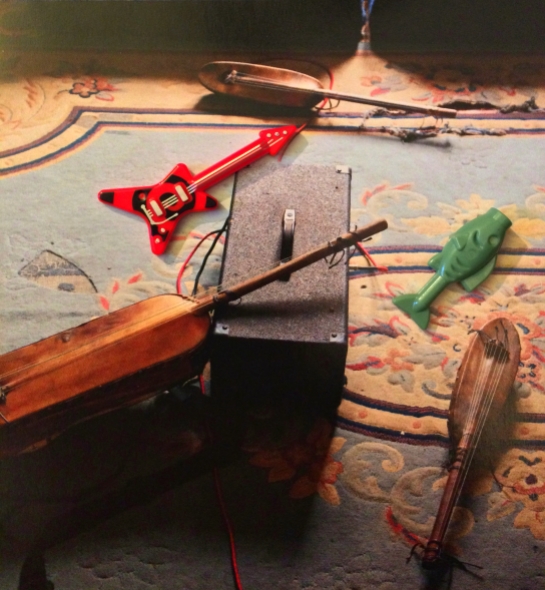
Anyway, since when have words ever been able to convey anything about music properly?^ play this, bring some benignity into your life. God may have been good to Bassekou, but Bassekou has certainly been very good for me today.
548 Down.
*a storyteller, a praise-singer and poet; akin to the Western tradition of the minstrel.
**one of the last pre-colonial era empires in Africa.
^actually, forget I ever said that and just carry on reading my blog regardless however true that sentence was!
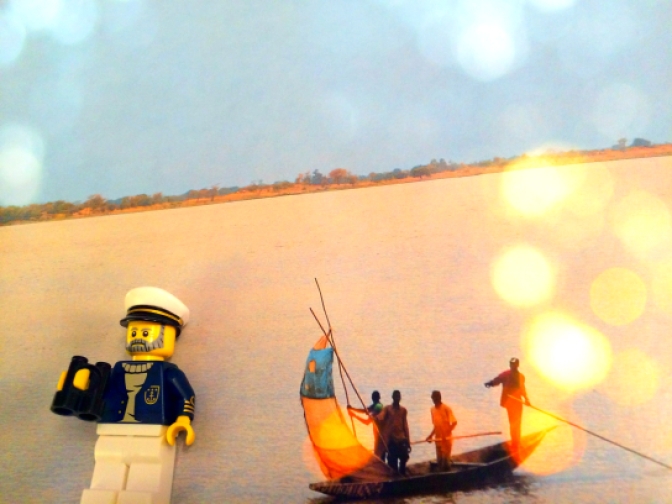
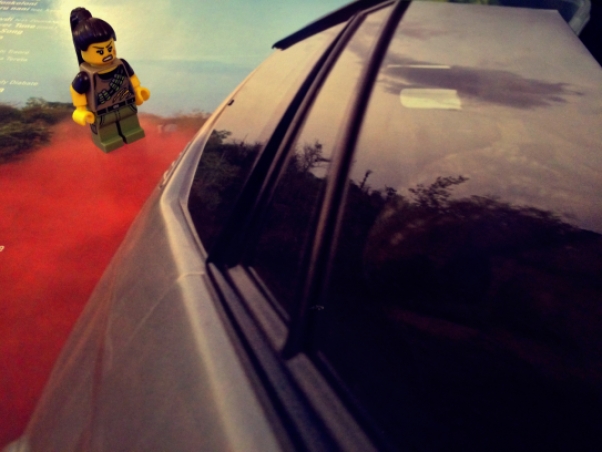

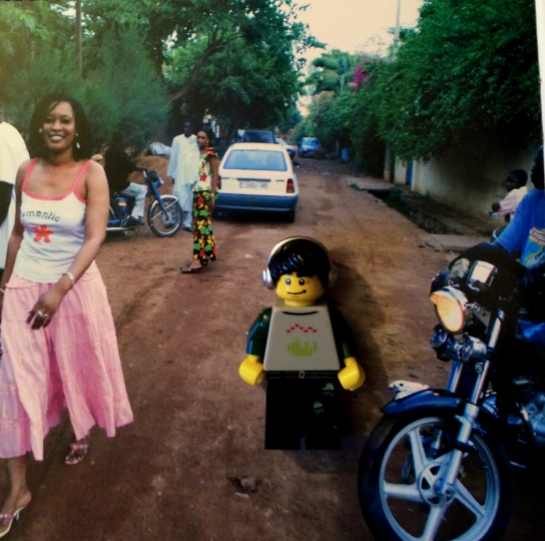
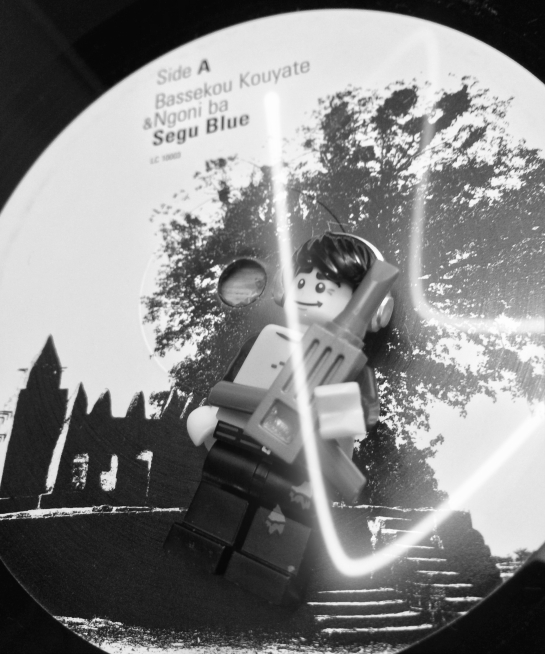

Another real good review and lead. Will check out in time. Thanks.
Thanks again. It’s a lovely album, you inspired me to give it a spin at the weekend.
I’ve had this album for a while and also think it’s great! The album ‘Jama Ko’ is also worth a listen. Great stuff, wonderful rhythms, feel good music.
It is just very uplifting. I’ve got Jama Ko too and really want the new one now. I’d love to see them as well.
OMG I want this.
Smashin’ stuff. I really like the sound of this one. Must seek out. At some point. Right now I’m gonna make a pot of coffee and ponder what to listen to on this fine Monday.
Love the instrument pic too. Nice one.
Is it possible to love the word braggadocio but un-like the behaviour? Do consult Spencer on my behalf.
Thank you. It’s just a damn fine word isn’t it?
Wow, wonderful post 1537. All this and a pot of proper coffee. Delightful. Thank you 🙂
Thank you, that’s very kind. It was balm for my soul this morning, well that and the coffee.
Thank you so much for sharing. There’s so much beauty in the world and some days it just can’t be ignored.